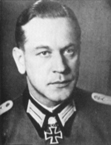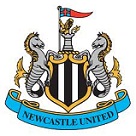Bif1961
Posts: 2014
Joined: 6/26/2008
From: Phenix City, Alabama
Status: offline

|
In the Spaatz Papers at the Library of Congress manuscript section, there is much radio traffic generated on Tinian in the second week of August. The U.S. Army Strategic Air Forces wanted the third bomb to be dropped on Tokyo as a wakeup call for the Japanese government, which was stalling on agreeing to the United Nations surrender terms. (That this could have been seriously proposed is an indication of how woefully uninformed USASTAF was about the destructive power of the weapons it had delivered to the Empire.) Back came a message, presumably from Hap Arnold, saying that the decision had already been made that the target would be Sapporo in the northern island of Hokkaido.
Chuck Hansen's great book U.S. Nuclear Weapons: The Secret History doesn't explicitly go into this question, but it does note that at the end of 1945 the U.S. owned a total of two atomic bombs, both Fat Man plutonium bombs. (This design became the standard U.S. nuclear weapon until into the 1950s.)
In Downfall: The End of the Imperial Japanese Empire, Richard Frank says it was General Marshall and General Grove who delayed the transport of the third bomb, sufficient that it couldn't have been deployed until August 21 or thereabouts.
In an August 2002 interview with Studs Terkel published in the British Guardian newspaper, Paul Tibbetts recalled something similar: "Unknown to anybody else--I knew it, but nobody else knew--there was a third one. See, the first bomb went off and they didn't hear anything out of the Japanese for two or three days. The second bomb was dropped and again they were silent for another couple of days. Then I got a phone call from General Curtis LeMay. He said, 'You got another one of those damn things?' I said, 'Yessir.' He said, 'Where is it?' I said, 'Over in Utah.' He said, 'Get it out here. You and your crew are going to fly it.' I said, 'Yessir.' I sent word back and the crew loaded it on an airplane and we headed back to bring it right on out to Trinian and when they got it to California debarkation point, the war was over."
|
 Printable Version
Printable Version






















 New Messages
New Messages No New Messages
No New Messages Hot Topic w/ New Messages
Hot Topic w/ New Messages Hot Topic w/o New Messages
Hot Topic w/o New Messages Locked w/ New Messages
Locked w/ New Messages Locked w/o New Messages
Locked w/o New Messages Post New Thread
Post New Thread